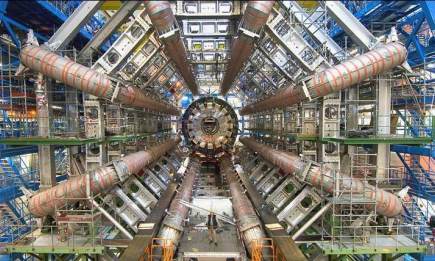Breakthrough: Neutrinos faster than light?

If the finding of researchers at CERN prove to be accurate, afundamental theory of physics has just been nullified. During the
According to data gained during the experiment, the neutrinoparticles needed 60 nanoseconds less than the speed of light totravel the distance. The measurement error was merely 10nanoseconds.
Decades ago Albert Einstein put forward in his specialrelativity theory (part of which is the famous equation E = mc²)that nothing can travel faster than approximately 300.000 km persecond which is the speed of light. Due to the major consequencesthis discovery would have for our understanding of physics, manyscientists remain skeptical.
U.S. lab to repeat the experiment
“This result comes as a complete surprise,” said OPERAspokesperson, Antonio Ereditato of the University of Bern. “Aftermany months of studies and cross checks we have not found anyinstrumental effect that could explain the result of themeasurement. While OPERA researchers will continue their studies,we are also looking forward to independent measurements to fullyassess the nature of this observation.”
This means that now it is up to CERN’s competing particleaccelerator, Fermilab (U.S.), to repeat the experiment. A theorythat was put forward is that the neutrinos might have taken a’shortcut’ by travelling through different dimensions. Some evenvoiced the idea that if things could really be accelerated to befaster than light, time travelling would theoretically be possibleas well.
Meest Gelezen
‘Free riding brengt het hoger onderwijs in de problemen’
Vrouwen houden universiteit draaiende, maar krijgen daarvoor geen waardering
Hbo-docent wil wel rolmodel zijn, maar niet eigen moreel kompas opdringen
‘Sluijsmans et al. slaan de plank volledig mis’
Aangepast wetsvoorstel internationalisering dient vooral samenleving in plaats van student
